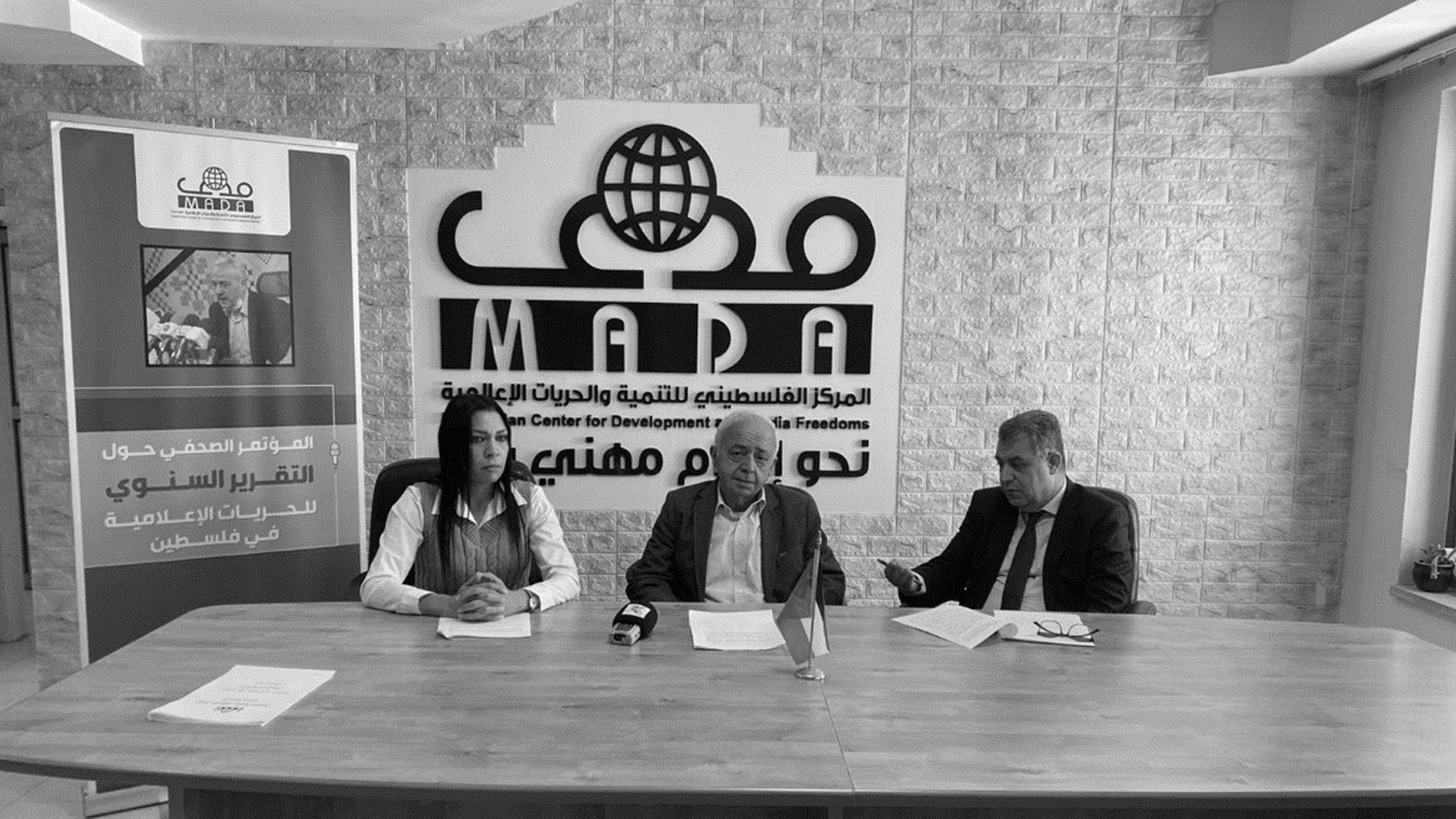
“Journalists were already working in a politically charged environment. They faced daily censorship. They couldn’t access information and sources. They risked intimidation and arrest for reporting on sensitive issues or criticising those in power. But over the past six months the risks to journalists have increased dramatically. Since the 7th of October, 127 journalists have been killed,” says Shireen Al-Khatib of MADA – the Palestinian Center for Development and Media Freedom.
MADA was set up in 2006 to monitor and document violations committee against Palestinian journalists. Its reports inform the work of local human rights organisations, as well as international organisations such as the United Nations, Amnesty International, Freedom House, the EU, and the US Government of State. Today, MADA is one of the only organisations documenting all violations of freedom of expression in Palestine, and it is the primary source for media reporting on this issue.
“At the time, we felt that journalists needed to have an institution to defend their rights and to give them space to express their ideas and to protect their freedom,” says Shireen.
MADA works to try to reduce violations of media freedoms, promote a culture of freedom of expression and media freedom, and ensure that Palestinian legislation regarding the media, freedom of expression, and access to information are in line with international standards.
Shireen explains that MADA documents 21 different types of Israeli violations against Palestinian journalists. These include all types of physical attacks, including killing, and online attacks. MADA’s regular reports detail these violations in the West Bank, East Jerusalem and Gaza Strip. The incidents are also included in their regular reports and in their annual media freedoms violations report.
Shireen relates that the team documented nearly 190 violations in October 2023, the first month of the war. These include violations in the Gaza Strip and in the West Bank and in Jerusalem. The rate of violations is increasingly constantly.
MADA reported that in March alone, the sixth month of the latest war in the Gaza strip, violations increased by 34 percent, with Israeli violations making up 95 percent of violations.
This includes the killing of eight journalists in the Gaza Strip, 17 physical attacks, including the injury of seven journalists from missile fragments when a journalists’ tent in the Gaza Strip was bombed. MADA’s report also includes cases of confiscation of journalists’ equipment, arrests and the detention of journalists.
Shireen underlines the highly difficult situation for journalists throughout Palestine. In Gaza, journalists are working in dire conditions, many of them living in tents as they have been repeatedly forced to move, and with constant risks to their lives.
She notes that the situation is also difficult for journalists in the West Bank. “There has been a significant increase in arrests of journalists there. 66 have been arrested since October, and many of them are still in prison. They are arrested because they are journalists. The Israeli authorities do not need to give a reason,” she says.
She explains that in the West Bank, it is increasingly difficult for journalists to do their job, as freedom of movement has been further curtailed. “We have a lot of checkpoints, as well as flying checkpoints or temporary checkpoints, and these are a huge problem. One moment a street is free, the next there is a checkpoint. It’s difficult for journalists to move around. They can’t get places fast enough to cover the news,” she says.
She explains that the MADA team are informed of violations by journalists and by media reports. They also have a team of field researchers.
A key part of MADA’s work is building the capacity of journalists. They give media training to journalists. Their most recent training was on harassment. They carry out media awareness campaigns for journalists about journalists’ rights and freedom of expression.
The team also provide legal assistance, including to detained journalists to ensure they receive fair treatment while in police or military custody. The team also have a legal expert based in Ramallah and another in Gaza, who prior to the recent war, provided legal support to journalists. Now, he can no longer work.
As part of MADA’s digital rights program they work to raise public and journalists’ awareness on digital rights related to freedom of expression and opinion, and the right to access information. They have also played an important role in advocating for legal changes in Palestine to guarantee freedom of expression.
EED provided MADA with funding at what Shireen describes as “a very difficult moment” when they faced financial difficulties. Thanks to the EED grant, MADA was able to employ an employee responsible for fundraising.
“Now we have five different projects. The EED funding was a springboard for us to be able to find further funding. We are stable, and I can see our future,” she says.
This article reflects the views of the grantees featured and does not necessarily represent the official opinion of the EED.